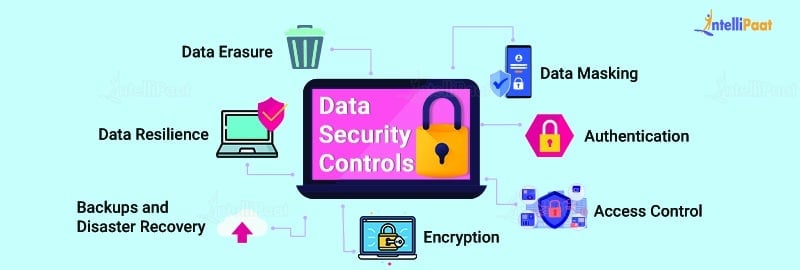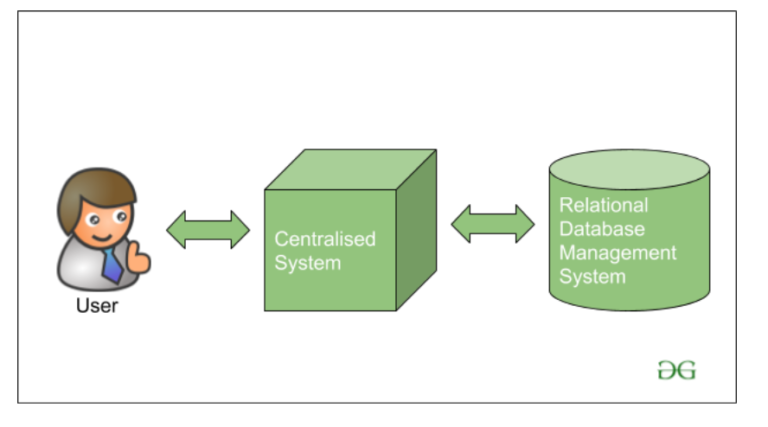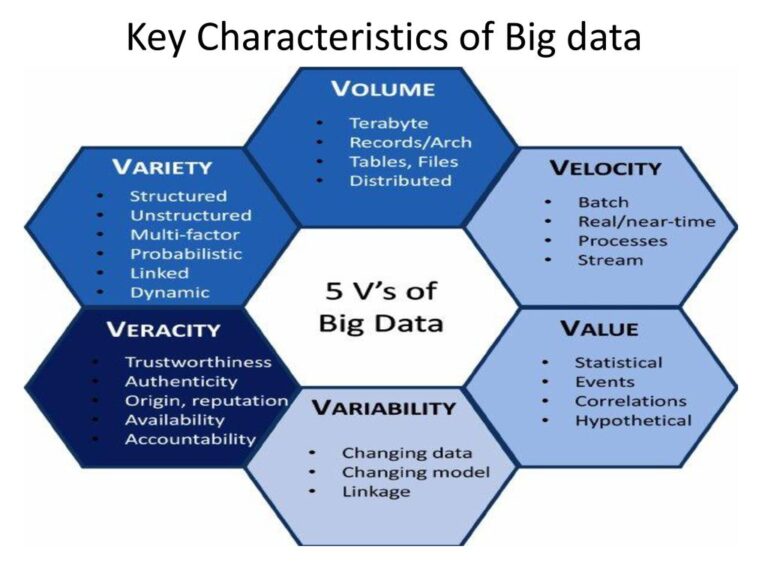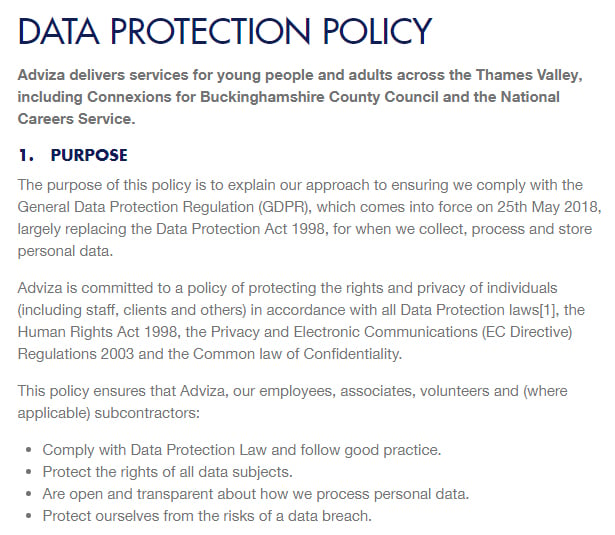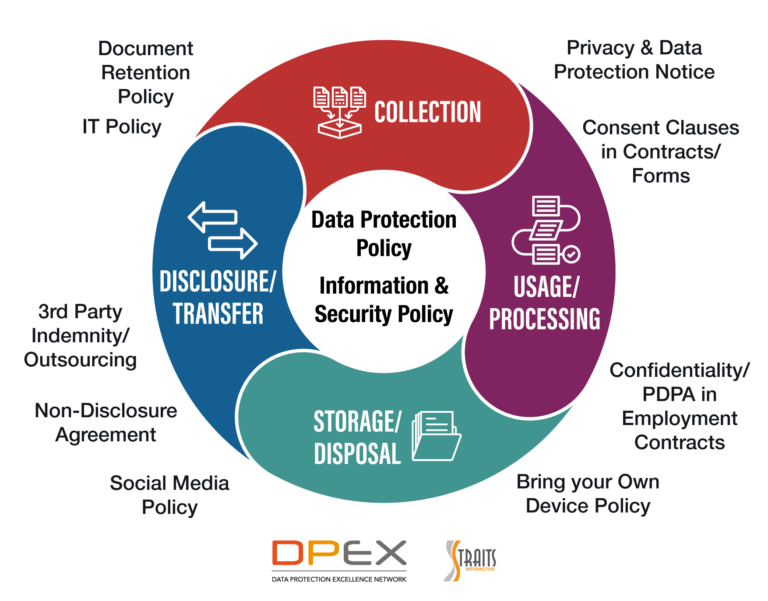What Is The Importance Of Data Protection In Big Data?
Data protection is an essential component of big data. As the amount of data collected, stored, and analyzed by businesses and organizations continues to grow, it is important to ensure that it is kept secure. Data protection safeguards data from unauthorized access, use, disclosure, or destruction. It also helps to protect the privacy of individuals whose data is being used. Furthermore, it helps to maintain the accuracy and integrity of data, preventing it from being corrupted or unintentionally modified. Finally, data protection helps to ensure compliance with legal requirements, such as privacy legislation, which can be critical for businesses.
Overview of Big Data
Big Data is a term used to refer to the exponential growth of data and the challenges that come with it. It is the collection, organization, and analysis of large amounts of data to uncover insights and trends. Big Data is used to make better decisions, improve customer experience, and drive innovation. It is also used for predictive analytics, fraud detection, and risk assessment. Big Data is an incredibly powerful tool, but it can also be complex and difficult to manage. Companies need to have the right infrastructure and technology in place to collect, store, and analyze large volumes of data. They must also have the right people in place to understand and interpret the data. Big Data is an exciting and rapidly evolving field, and it’s only going to become more important as the amount of data increases. As companies become more data-driven, they’ll need to be able to leverage Big Data to stay competitive.
Challenges of Big Data
Big data is a term used to describe the exponential growth and availability of data, both structured and unstructured. With the advent of the internet of things, big data is becoming increasingly important for businesses. However, harnessing and managing big data can be a challenge. Challenges associated with big data include storage and retrieval, data security, data privacy, data governance, data quality, data scalability, and data analytics. Storage and retrieval of big data requires the use of sophisticated data warehouses and data lakes, as well as advanced search and indexing techniques. Data security and privacy issues are essential to consider when managing big data, as organizations must ensure confidential data is not exposed. Data governance is also an important factor, as organizations must ensure data is properly managed and stored. Additionally, data quality must be maintained, to ensure data is accurate and up-to-date. Finally, scalability and analytics are key in order to analyze large volumes of data and obtain actionable insights.
Benefits of Data Protection
Data protection is a critical component of any business, providing a secure and reliable way to ensure that confidential information is not misused or accessed by unauthorized individuals. In addition to providing security, data protection also offers a number of tangible benefits. By protecting data, businesses can ensure that customer privacy is maintained, reduce the risk of data breaches, and ensure compliance with applicable laws and regulations. Data protection also helps to reduce costs associated with data loss, as well as strengthen competitive advantage by keeping valuable information secure. In a world where data is increasingly at risk, data protection is a must-have for any organization that values its data and its customers.

Different Types of Data Protection
Data protection is an important concept in today’s digital world, where the protection of information is paramount. Different types of data protection exist, from encryption to firewalls, and from access control systems to data scrubbing. Encryption is the process of taking plain text and scrambling it so that it can only be read by an authorized user. Firewalls are a system of blocking unauthorized access to networks, while access control systems will grant access to only those with the right credentials. Data scrubbing is a process of regularly cleaning a database to ensure that only the necessary data is stored. All of these measures are important in keeping data secure and safe, and can help companies protect their customers’ sensitive information.
Best Practices for Data Protection
Data protection is essential for organizations of all sizes to ensure the security of their information. It is important to have policies and procedures in place to protect data from unauthorized access, use, and disclosure. Best practices for data protection involve implementing security measures to protect data, such as encryption and access control. Additionally, organizations should ensure that their data is backed up regularly and securely stored. Organizations should also be aware of their responsibilities regarding data protection, including keeping up with applicable laws and regulations, making sure to properly dispose of data when it is no longer needed, and training employees on data protection policies. By following best practices for data protection, organizations can ensure that their data remains secure and confidential.
Consequences of Neglecting Data Protection
Data protection is becoming increasingly important as we all become more reliant on the internet for our day to day activities. Neglecting data protection can have serious consequences for both individuals and businesses alike. Unprotected data can be accessed and stolen by malicious actors, leading to identity theft, financial loss, and reputational damage. Additionally, companies that do not adequately protect their data may be subject to hefty fines, as many countries are now implementing strict regulations that require businesses to ensure their data is secured. Furthermore, businesses that are not proactive about data security may also find themselves in breach of contractual obligations, leading to further financial losses. Therefore, it is essential that businesses invest in data protection measures to ensure their data is secure, and to protect themselves from any potential repercussions of neglecting data protection.
FAQs About the What Is The Importance Of Data Protection In Big Data?
1. What kind of data protection strategies should I use when working with big data?
A: When working with big data, it is important to employ a number of security strategies including authentication, authorization, encryption, data integrity, and access control. Additionally, organizations should ensure that they are compliant with data protection regulations such as the General Data Protection Regulation (GDPR).
2. How does data protection in big data help prevent data breaches?
A: Data protection in big data helps prevent data breaches by adding an additional layer of security. Data protection strategies such as encryption and access control can help protect data even if a breach does occur. Additionally, data protection regulations such as GDPR can help organizations identify and address potential breaches quickly.
3. What are the consequences of failing to implement data protection in big data?
A: Failing to implement data protection strategies in big data can result in serious repercussions such as financial penalties, reputational damage, and legal action. Additionally, organizations that fail to protect their data can be held liable for any losses incurred as a result of a data breach.
Conclusion
Data protection is an essential part of any big data environment. By protecting data from unauthorized access, organizations can ensure that their data is secure and can be used for the right purposes. Data protection also helps organizations comply with regulations and increase customer trust. Additionally, data protection can help organizations protect sensitive information and reduce the risk of data breaches. Ultimately, data protection helps organizations ensure that their big data is secure and can be used responsibly.
